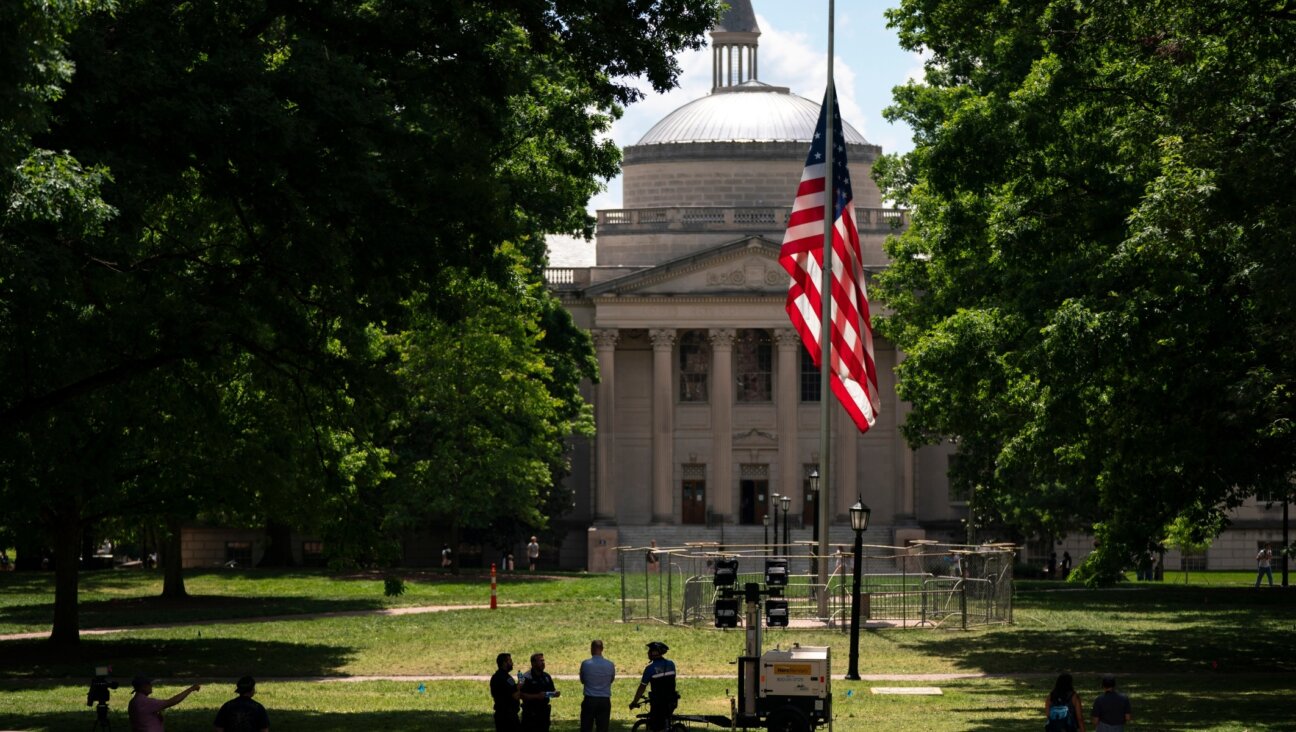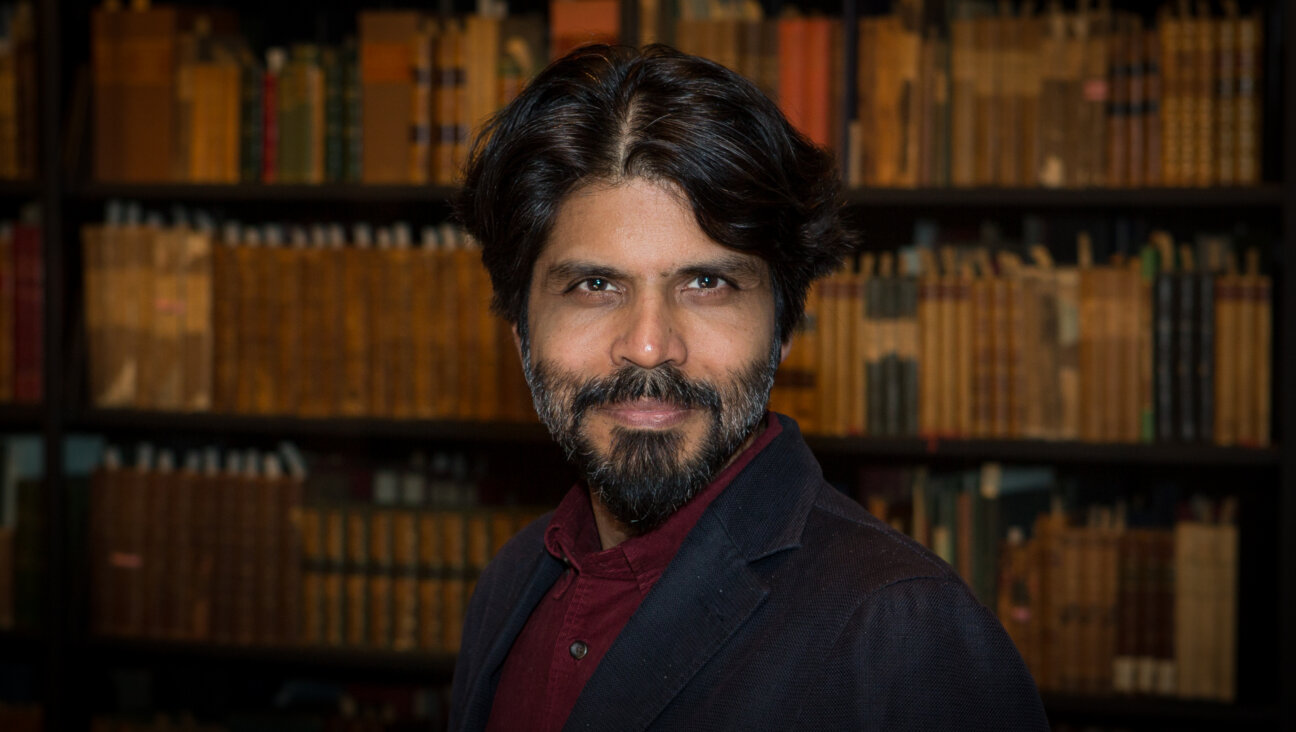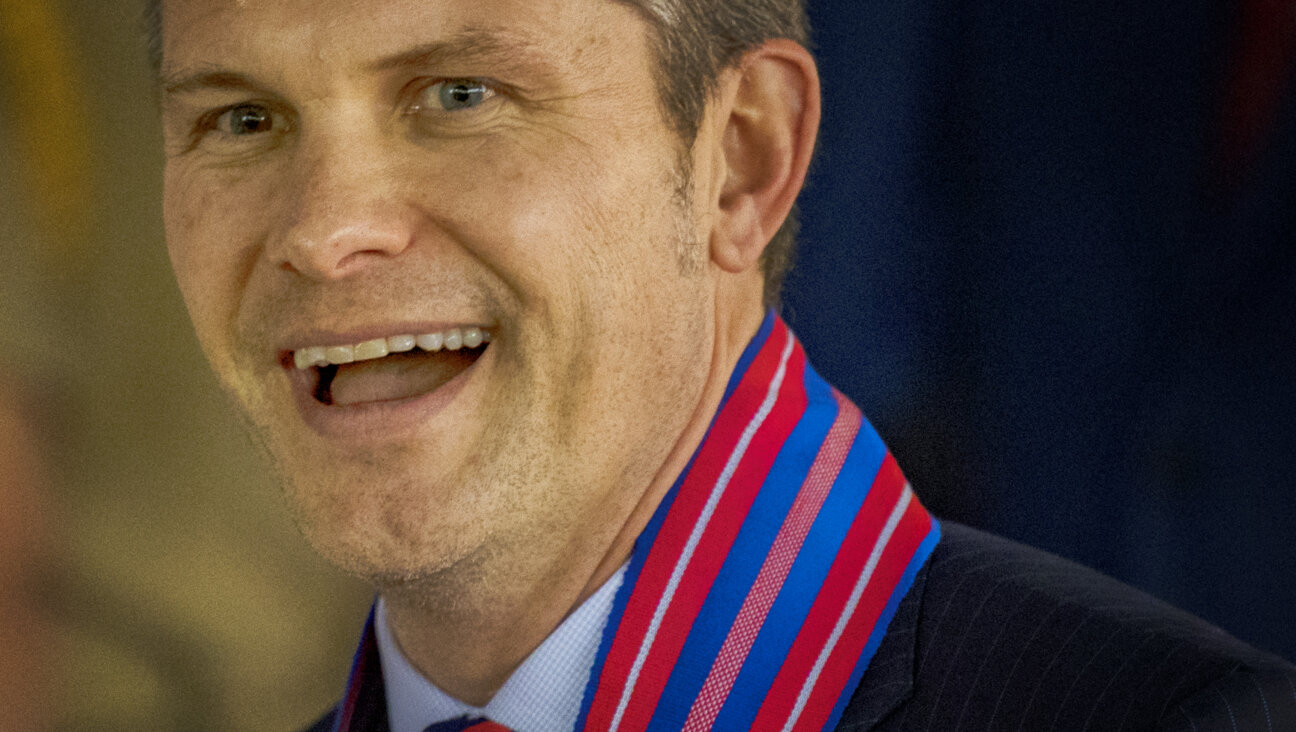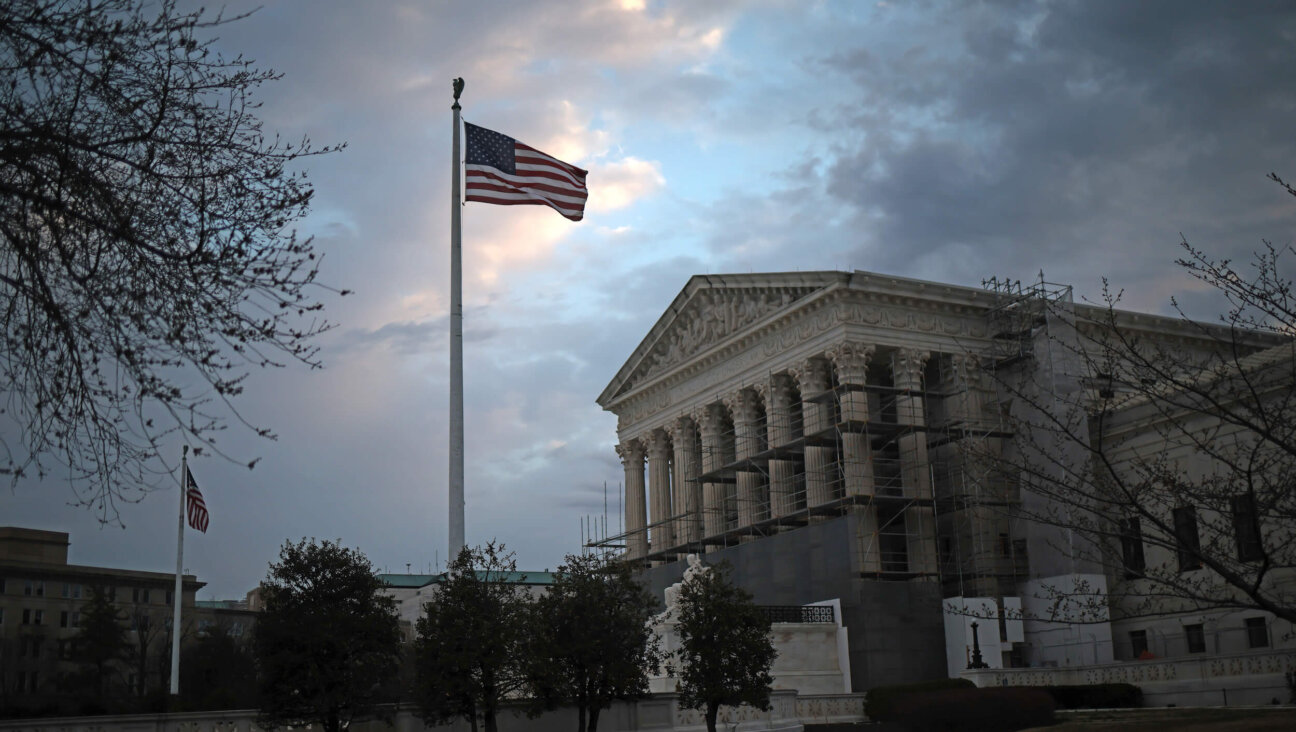A Case For Shaping Civil Society With Jewish Law
The poster took my breath away: “The divine throne will not be complete until the idolatry of Zionism is uprooted. May it be Your will that we will soon be able to say, ‘Blessed is the One who has uprooted idolatry.’”
I was not in Ramallah, but in Mea Shearim, the ultra-Orthodox enclave of West Jerusalem. Holding my bag of freshly purchased seforim, or holy books, I marveled at the irony: A member of the same community that routinely uses religious language to convey violent contempt for fellow citizens had just sold me the books that I would use to develop a Jewish call for a compassionate society.
My family’s recent sabbatical in Israel yielded searing images of religious Jews behaving badly in the name of Judaism: Men in black hats setting fire to garbage cans to protest relocating ancient graves in order to build an emergency room to care for the living. Religious Jews evicting Palestinians from their homes in East Jerusalem. Male worshippers at the Kotel telling me and other women praying there with Women of the Wall that we are to blame for the Holocaust. A woman standing at a Beersheva bus stop attacked by a man who noticed tefillin marks on her arm. Haredi groups demanding more and more public support for their schools, which teach contempt for the society that subsidizes them.
It’s no wonder that so many Israeli Jews want nothing to do with religion. Or that so many perceive Judaism to be a sexist, racist and oppressive force.
When I argue for bringing a Jewish voice into the public square, people sometimes respond by pointing angrily at the role of religion in Israeli politics. In Israel, it is religious texts and voices that are most often used to justify avoiding army service; to curtail the rights of women, gays and lesbians, and ethnic minorities; and to limit the ability of non-Orthodox Jews to marry or have their conversions recognized.
This situation results from a number of politically motivated compromises, notably the decision to give the religious establishment major control over matters regarding personal status, and the disproportionate power of small parties in a parliamentary system.
When people ask me whether I think that Halacha, or Jewish law, should govern civil law in the State of Israel, my response is “No, but —.” Given the current religious power structures in Israel, I shudder to think of the damage that might be done by Haredi authorities.
But — if Israelis were willing to open up space for a multi-vocal Jewish conversation about civil law, the result might be a state that cares more deeply for its citizens, and in which Jewish law is more alive, than at any other time in the past 2,000 years.
This spring, I received a phone call from a lawyer for Rabbis for Human Rights who was preparing arguments for the Israeli Supreme Court against Israel’s “Wisconsin Plan,” an ill-advised welfare-to-work program that resulted in thousands of people losing their benefits without being able to secure jobs.
The lawyer had been combing my book, “There Shall Be No Needy,” for Jewish legal texts that would inform the case. Together, we decided that she should focus on a legal decision regarding national insurance by Hayim David Halevi, the chief Sephardic rabbi of Tel Aviv from 1973 until his death in 1998. In his decision, Halevi argued that the state holds ultimate responsibility for the wellbeing of its members.
The case against the Wisconsin Plan succeeded. The project was canceled (at least for the moment), and thousands had their benefits restored. I cannot say for sure that the citation of Halevi swung the case, but I certainly hope that it had some impact.
Again, the irony is rich: An American female Conservative rabbi introduces a text written by an Israeli Orthodox rabbi in order to stop an Israeli social program imported from the United States.
Halevi was not a liberal by any contemporary definition. Nor were other prominent rabbinic figures who tried to apply Jewish law to the economic and social concerns of the fledgling Israeli state. Eliezer Waldenberg, an influential religious judge whose opinions in support of labor unions I often quote, dedicated other legal opinions to railing against the Reform and Conservative movements. While neither of these men would have signed my ordination certificate, they and others like them were engaged in a sincere project of resuscitating Jewish civil law to create a state that would care for its citizens.
Today, this model seems like a distant memory. Rather than looking for ways that Judaism might be a positive force in the social and economic life of Israel, the religious powers engage in limiting the powers of non-Orthodox Jews, harassing would-be converts and even calling for the destruction of the state itself.
At best, the project of building a Jewish state involves creating a country that embodies the best of Jewish wisdom regarding the mutual responsibilities of individuals and communities. Achieving this dream requires all religious Jews — Orthodox, Conservative, Reform, Reconstructionist, Renewal or others — to devote ourselves to this challenge.
Rabbi Jill Jacobs is the author of “There Shall Be No Needy: Pursuing Social Justice Through Jewish Law and Tradition” (Jewish Lights, 2009).
The Forward is free to read, but it isn’t free to produce

I hope you appreciated this article. Before you go, I’d like to ask you to please support the Forward.
At a time when other newsrooms are closing or cutting back, the Forward has removed its paywall and invested additional resources to report on the ground from Israel and around the U.S. on the impact of the war, rising antisemitism and polarized discourse.
Readers like you make it all possible. We’ve started our Passover Fundraising Drive, and we need 1,800 readers like you to step up to support the Forward by April 21. Members of the Forward board are even matching the first 1,000 gifts, up to $70,000.
This is a great time to support independent Jewish journalism, because every dollar goes twice as far.
— Rachel Fishman Feddersen, Publisher and CEO
2X match on all Passover gifts!
Most Popular
- 1

Film & TV What Gal Gadot has said about the Israeli-Palestinian conflict
- 2

News A Jewish Republican and Muslim Democrat are suddenly in a tight race for a special seat in Congress
- 3

Opinion Is this new documentary giving voice to American Jewish anguish — or simply stoking fear?
- 4

Culture How two Jewish names — Kohen and Mira — are dividing red and blue states
In Case You Missed It
-

Fast Forward Washington, D.C., Jewish federation will distribute $180,000 to laid-off federal workers
-

Fast Forward House approves bill requiring campuses to report more foreign funding
-

Books So much to say about Israeli violence, so little to say about violence against Jews
-

Opinion Think every Palestinian in Gaza is Hamas? This week’s protests prove you’re wrong
-
Shop the Forward Store
100% of profits support our journalism
Republish This Story
Please read before republishing
We’re happy to make this story available to republish for free, unless it originated with JTA, Haaretz or another publication (as indicated on the article) and as long as you follow our guidelines.
You must comply with the following:
- Credit the Forward
- Retain our pixel
- Preserve our canonical link in Google search
- Add a noindex tag in Google search
See our full guidelines for more information, and this guide for detail about canonical URLs.
To republish, copy the HTML by clicking on the yellow button to the right; it includes our tracking pixel, all paragraph styles and hyperlinks, the author byline and credit to the Forward. It does not include images; to avoid copyright violations, you must add them manually, following our guidelines. Please email us at [email protected], subject line “republish,” with any questions or to let us know what stories you’re picking up.














